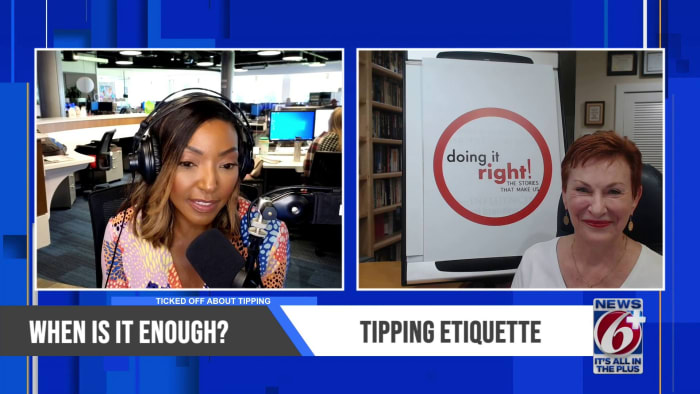Perhaps you’ve noticed. We have reached a tipping point in the country over tipping.
To tip or not to tip has led to Shakespearean soliloquies by customers explaining why they refuse to tip for certain things.
During the height of the COVID-19 pandemic, customers were grateful for those who seemingly risked their safety so we could get groceries, order dinner or anything that made our lives feel normal. A nice tip was the least we could do to show gratitude.
But now that we are out about and back to normal, the custom of tipping for just about everything has somehow remained; and customers are upset.
A new study from Pew Research shows most American adults say tipping is expected in more places than it was five years ago, and there’s no real consensus about how tipping should work.



“Weeks,” lol. No. It was three days. And that was absolutely the point of it: to get you to spend more money on alcohol, spending that you would NOT have done if every drink had been a separate transaction.
Also, I think you’re confused on the card transaction part of things: the merchant back is only charging for credit card transactions, not for cash, and card transaction fees are a miniscule amount of each charge that varies per card issuer. 6-7% Mastercard and Visa, up to 14% American Express IIRC.
For example, 7% of $100 is still $7, whether that is charged ten times for $10 each, or once for $100.
The drinks are already priced accordingly, and of any establishment that sells alcohol, the alcohol already has the highest markup of anything else sold: most of that bottle is pure profit, making up for the rest of the house and whatever loss leaders they have to get people in.
Just buying just ONE extra overpriced drink more than wipes out an entire day of single merchant bank card fees for that customer. It’s not the huge gouge you think it is.
And that’s where your theory falls apart. There is ZERO loss to merchants for cash paying customers; rather, the loss to merchants is for credit card paying customers. The merchant makes more keeping the cash payers OFF the credit card interchange altogether.
So there is literally ZERO benefit to a merchant to pull the cash customers onto the store card, unless it’s to get them to spend more.